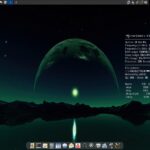Say 'no thanks' Microsoft Windows 11 and 'yes please' to AnduinOS 1.3

With Windows 10’s end of life looming, users are beginning to consider their next steps. In the past, upgrading to the latest Windows release might have been the obvious path, but Windows 11 -- with its tighter hardware requirements, bloat, problematic updates, insistence on a Microsoft account, and an increasing focus on unwanted AI features -- may no longer be the first choice for many.
Thankfully, Windows 11 isn’t the only game in town. Several Linux operating systems have been developed to appeal to Windows users looking to jump ship. AnduinOS is one such distribution, combining the familiarity of Windows 11 with the power of Ubuntu, and it's just been updated to version 1.3.0.
Orb shows how fast and reliable your internet connection really is -- available on all major platforms

When it comes to checking your internet connection, many people still turn to old-fashioned speed tests. You get rated with a number or grade, maybe feel good about it, and move on. But the truth is, those numbers don’t tell the whole story. That’s where Orb comes in -- a brand-new app that promises a real look at how your internet actually performs day to day.
Orb was built by some familiar names. Doug Suttles and Jamie Stevens, who helped create Speedtest and Downdetector, are leading the project, along with a group of former Ookla and Fastly veterans. It’s safe to say they know a thing or two about internet performance.
Kali Linux users warned that updates are likely to fail for a few days

Showing that it is not just Windows 11 that has issues with updates, Offensive Security has issued a warning that Kali Linux updates are likely to fail “in the coming days”.
The Linux distro has proved an important tool in penetration testing, acting as a valuable security tool for many users. The team behind Kali Linux says that “pretty much every Kali system out there will fail to update”, and it bears full responsibility: “This is not only you, this is for everyone, and this is entirely our fault”. But there is a solution.
Install 4MLinux 48.0 to breathe new life into your old computer

Let’s be honest, y’all -- it is pretty easy to feel overwhelmed by everything going on these days. Bad news seems to hit from every direction, leaving many people feeling helpless or anxious. But believe it or not, there is a simple, satisfying way to take back a little bit of control -- by breathing new life into an old computer with a refreshing Linux distribution such as 4MLinux.
You see, the new 4MLinux 48.0 series has officially been declared stable (download here), and it brings a whole lot to the table for such a lightweight operating system. Whether you want to write documents in LibreOffice 25.2 or GNOME Office (featuring AbiWord 3.0.5, GIMP 2.10.38, and Gnumeric 1.12.59), this little distro has you covered. Browsing the web is easy too, with both Firefox 137.0 and Chrome 135.0 ready to roll. Thunderbird 128.9 is there if you still prefer handling email the old-fashioned way.
Brave open sources Cookiecrumbler to make cookie consent blocking smarter

Brave just made a move that should make privacy enthusiasts pretty happy. The company has officially open sourced Cookiecrumbler, a tool designed to automatically detect and help block those obnoxious cookie consent banners you see across the Web. These pop-ups are not only annoying but, according to research, often track users even when they click reject. Cookiecrumbler aims to stop that nonsense while avoiding the headaches that can come with sloppy blocking rules.
Lately, Brave has been my go-to web browser. It’s open source, cross-platform, and runs beautifully on Linux, which I appreciate as a Linux fan. Even better, it handles ad-blocking on iOS -- something many other browsers don’t offer. And perhaps most importantly, it does all of this without relying on Google.
Never mind Windows 11, Commodore OS Vision 3.0 is the retro-inspired OS you didn't know you needed -- download it now!

We regularly suggest operating systems to consider if you’re feeling disillusioned by Windows 11, and judging by their popularity, Microsoft should be concerned by just how many people are looking to jump ship.
Commodore OS Vision has just been updated to version 3.0, and it’s a major overhaul. The Linux-based operating system offers the modern features you’d expect, but with a retro twist. It’s also packed with classic Commodore content that will appeal to anyone who owned one of those systems in the past.
Hackers can now bypass Linux security thanks to terrifying new Curing rootkit

Most Linux users assume their security tools will catch bad actors before damage is done -- but sadly, new research suggests that confidence may be misplaced. You see, ARMO, the company behind Kubescape, has uncovered what could be one of the biggest blind spots in Linux security today. The company has released a working rootkit called “Curing” that uses io_uring, a feature built into the Linux kernel, to stealthily perform malicious activities without being caught by many of the detection solutions currently on the market.
At the heart of the issue is the heavy reliance on monitoring system calls, which has become the go-to method for many cybersecurity vendors. The problem? Attackers can completely sidestep these monitored calls by leaning on io_uring instead. This clever method could let bad actors quietly make network connections or tamper with files without triggering the usual alarms.
No Linux for old men -- ArcoLinux reaches the end of the line

The ArcoLinux project is winding down after eight years because its project lead is beginning to feel his age.
Announcing the move in a blog post, Erik Dubois says the ArcoLinux community will discontinue its distribution and related projects.
OpenMandriva Lx 6.0 brings KDE Plasma 6 and Proton for running Windows games on Linux

The folks behind OpenMandriva have officially released version 6.0 of their Linux distribution. This is the fixed-point “Rock” release, and not the rolling edition, so it is all about stability rather than chasing the latest experimental packages.
KDE Plasma 6 is the star of the show here, serving as the default desktop environment. Users can choose between X11 or Wayland sessions, but there’s a catch. If you plan to run OpenMandriva Lx 6.0 in VirtualBox, X11 is strongly recommended. The team warns about problems with Wayland on VirtualBox’s emulated GPU, though things work fine on real hardware or in QEMU with KVM. For VirtualBox, don’t forget to set VMSVGA to avoid boot issues.
Install Linux on your old PC to save it from the landfill this Earth Day

Earth Day is tomorrow, and it is a time to reflect on how we treat the planet we all share (until Elon Musk colonizes Mars, at least). While some people mark the day by picking up trash or planting a tree, there’s another simple yet powerful way to help the environment that you might not have considered -- install Linux on your aging computer instead of tossing it in the trash!
Old computers don’t have to die. In fact, most of them still have plenty of life left in them -- if you’re willing to ditch bloated operating systems that no longer support them. That’s where Linux comes in. Unlike Windows 11, which demands modern processors and fairly high-end specs just to boot, many Linux distributions run smoothly on older hardware. Whether it’s a decade-old laptop collecting dust or a desktop with a failed Windows installation, Linux can breathe new life into machines that would otherwise end up in landfills.
TrueNAS 25.04 ‘Fangtooth’ debuts with Linux foundation and unified SCALE and CORE codebase

TrueNAS 25.04, codenamed “Fangtooth,” was recently released (download here), and with it comes a full embrace of Linux as the underlying base. While previous versions of TrueNAS were confusingly split between CORE (built on FreeBSD) and SCALE (built on Linux), this release finally pushes the project further into its beautiful Linux future.
This version builds on the foundation laid by TrueNAS 24.10 “Electric Eel.” That version brought improved performance and Docker support, and Fangtooth expands on it with more than 1,000 changes, including over 150 bug fixes. The update is being offered as a release version, but iXsystems is still recommending it for early adopters only -- at least for now.
Stylish Windows 11 replacement Nitrux is about to solve a big app headache for users

Nitrux, which is one of our favorite Linux-based Windows 11 alternatives, is rolling out a major upgrade to how users manage software on the system. The move, which is aimed at improving reliability and user control, replaces two aging tools -- the NX Software Center and the zap CLI -- with a new, purpose-built system called NX AppHub.
For those unfamiliar, Nitrux doesn’t use a traditional package manager like apt or rpm. Instead, it focuses on AppImages, which are self-contained applications that run independently of system libraries. Although this approach avoids dependency issues, it previously came with a rather major downside -- apps were often outdated or pulled from unreliable sources. That’s where NX AppHub comes in.
Manjaro Linux 25 now available for download

Great news, folks -- the developers of Manjaro have officially launched version 25 of the popular Linux distribution. Codenamed “Zetar,” this release delivers updated desktop environments, new features aimed at improving performance and usability, and expanded hardware support through the latest Linux kernel.
The GNOME edition now ships with version 48 of the desktop environment, a release first introduced in March 2025. One of the key features is notification stacking, which organizes alerts from the same app into expandable groups. GNOME 48 also includes dynamic triple buffering, a technology aimed at delivering smoother animations and reducing skipped frames.
Debian 12-based MX Linux 23.6 is the Windows 11 alternative of your dreams

You know what, folks? Sometimes, the best updates are the ones that don’t try too hard. That’s exactly the case with MX Linux 23.6. There’s no nonsense to be found here -- just a strong Linux distribution that continues to get better.
While Microsoft continues to push AI distractions and questionable design changes in Windows 11, MX Linux sticks to what matters: speed, stability, and letting the user stay in control. In fact, MX Linux 23.6 could truly be the Linux distribution of your dreams!
DaVinci Resolve 20 beta brings over 100 new features and AI tools to Windows, macOS, and Linux -- download it now!

Blackmagic Design has launched the public beta for DaVinci Resolve 20, and folks… it’s a big one. This massive update to the video editing software adds more than 100 new features, and it’s available right now for folks using Windows, macOS, and Linux. And yes, there is even a Windows ARM version too!
This time around, the company is leaning into artificial intelligence pretty hard. After all, AI is all the rage these days -- it must be crammed in. All joking aside, the AI functionality actually seems useful. In other words, it shockingly doesn’t seem to be a gimmick.
© 1998-2025 BetaNews, Inc. All Rights Reserved. About Us - Privacy Policy - Cookie Policy - Sitemap.